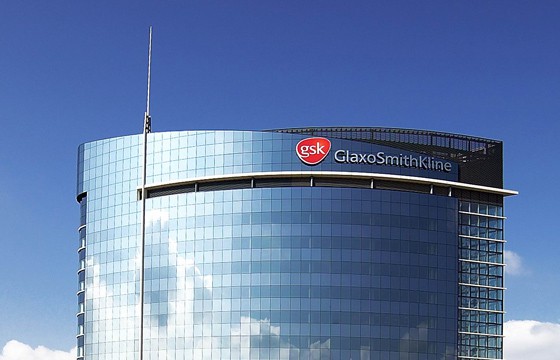
As confirmed cases of the novel coronavirus continue to rise, GlaxoSmithKline and Gilead have joined the global efforts to tackle the infection.
The coronavirus – also known as 2019-nCoV or Wuhan coronavirus – has afflicted 17,000 people in China, and over 150 in other countries.
As of today, there have been 361 confirmed fatalities caused by the infection in mainland China alone, and one death outside China confirmed in the Philippines.
With global concern rocketing as cases rise, the pharmaceutical industry has amped up its efforts to help tackle the growing health issue, offering expertise as its rallies on a shared ambition – to rapidly develop therapeutics and vaccines which can be used against the coronavirus.
GSK has announced a collaboration with the Coalition for the Epidemic Preparedness Innovations (CEPI) to develop a vaccine for the 2019-nCoV virus, by offering its established pandemic vaccine adjuvant platform technology for the development of an effective vaccine.
“Our adjuvant technology has previously been used successfully in the pandemic flu setting. It enables using only small quantities of the vaccine antigen which allows the production of more doses of the vaccine – a crucial advantage in a pandemic,” said Thomas Breuer, chief medical officer, GSK Vaccines.
The first agreement to formalise the collaboration is between GSK and The University of Queensland, Australia, which entered into a partnering agreement with CEPI in January 2019 to develop a ‘molecular clamp’ vaccine platform to enable targeted and rapid vaccine production against multiple viral pathogens.
This was extended to included work on a coronavirus vaccine candidate – access to the GSK adjuvant technology will support the early stage research of the potential vaccine.
“The research team at The University of Queensland are progressing a 2019-nCoV vaccine programme and the availability of the GSK adjuvant will enable us to carry out important pre-clinical experiments designed to assess vaccine effectiveness,” said Professor Peter Høj, vice-chancellor, The University of Queensland.
Also offering its help to the targeted efforts is Gilead, which announced last week that it has provided its experimental Ebola therapy for use in a small number of patients with the coronavirus in China, and is working with the country’s health authorities to set up a study.
The experimental drug – remdesivir – is an antiviral aimed at treating infectious diseases including Ebola and SARS. The trials of the drug will take place in Wuhan City, Hubei Province – the epicentre of the outbreak – and will be tested by a team from Beijing-based China-Japan Friendship Hospital.
China’s health regulator has also recommended AbbVie’s HIV treatment Kaletra (lopinavir/ritonaviras) as a potentially effective drug for treatment of the coronavirus – it too will undergo human trials in China testing it against 2019-nCoV.
Last week, Johnson & Johnson also said it has begun the development of a vaccine for the coronavirus, as well as providing 50 boxes containing tools for laboratory-based investigations to the Chinese Center for Disease Control and Prevention, which included drug-screening for antiviral properties against 2019-nCoV.
J&J also donated 300 boxes of its HIV medication Prezcobix (darunavir/cobicistat) to the Shanghai Public Health Clinical Center and Zhongnan Hospital of Wuhan University for research use.
UK Government response
Health Secretary Matt Hancock (pictured below) has announced today that £20m in Government funding will be given to CEPI to advance programmes targeting the coronavirus.
“Vaccines are our best defence against a host of deadly diseases,  including coronavirus. The UK is a hub of world-leading and pioneering research, and it is vital that we lead the way in developing new vaccines to target global threats with scientists from across the world,” said Hancock.
including coronavirus. The UK is a hub of world-leading and pioneering research, and it is vital that we lead the way in developing new vaccines to target global threats with scientists from across the world,” said Hancock.
“The £20m announced today will help our globally-recognised vaccine development capabilities continue to develop new defences against emerging diseases including coronavirus,” he added.
The Government is also reportedly in discussions with the National Institute for Health Research and the UK Research and Innovation for plans to conduct research to help the global efforts to tackle the threat.
The response comes shortly after the World Health Organization declared the outbreak a global health emergency, as cases began to appear in a growing number of countries – including Germany, France, the US and the UK.




